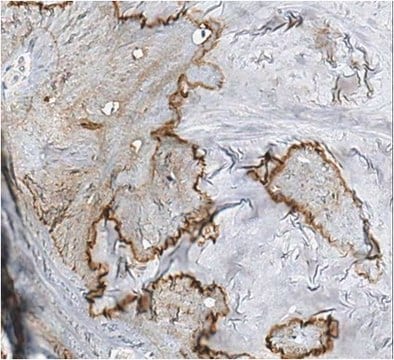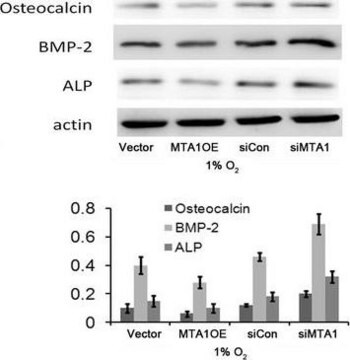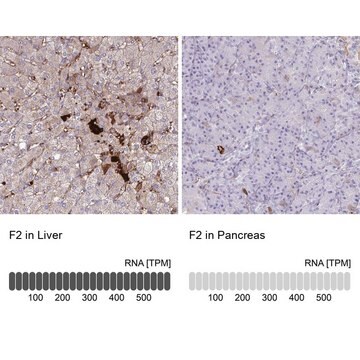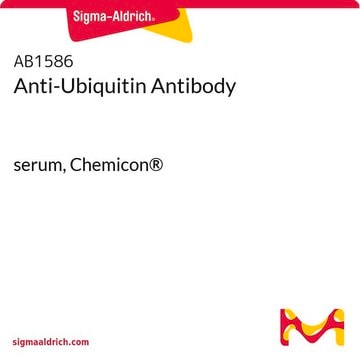MABF243
Anti-Par-2 Antibody, clone SAM11
clone SAM11, from mouse
Synonym(s):
Proteinase-activated receptor 2, PAR-2, Coagulation factor II receptor-like 1, G-protein coupled receptor 11, Thrombin receptor-like 1
About This Item
Recommended Products
biological source
mouse
Quality Level
antibody form
purified immunoglobulin
antibody product type
primary antibodies
clone
SAM11, monoclonal
species reactivity
mouse, human
technique(s)
flow cytometry: suitable
immunohistochemistry: suitable
western blot: suitable
isotype
IgG2aκ
NCBI accession no.
UniProt accession no.
shipped in
wet ice
target post-translational modification
unmodified
Gene Information
human ... F2RL1(2150)
General description
Immunogen
Application
Flow Cytometry Analysis: Arepresentative lot from an independent laboratory detected Par-2 in Par-2 transfected COS-1 cells (Molino, M., et al. (1997). J Biol Chem. 272(17):11133-11141.).
Inflammation & Immunology
Immunoglobulins & Immunology
Quality
Western Blotting Analysis: 0.5 µg/mL of this antibody detected Par-2 in 10 µg of NIH/3T3 cell lysate.
Target description
Physical form
Storage and Stability
Other Notes
Disclaimer
Not finding the right product?
Try our Product Selector Tool.
Storage Class Code
12 - Non Combustible Liquids
WGK
WGK 1
Flash Point(F)
Not applicable
Flash Point(C)
Not applicable
Certificates of Analysis (COA)
Search for Certificates of Analysis (COA) by entering the products Lot/Batch Number. Lot and Batch Numbers can be found on a product’s label following the words ‘Lot’ or ‘Batch’.
Already Own This Product?
Find documentation for the products that you have recently purchased in the Document Library.
Our team of scientists has experience in all areas of research including Life Science, Material Science, Chemical Synthesis, Chromatography, Analytical and many others.
Contact Technical Service








